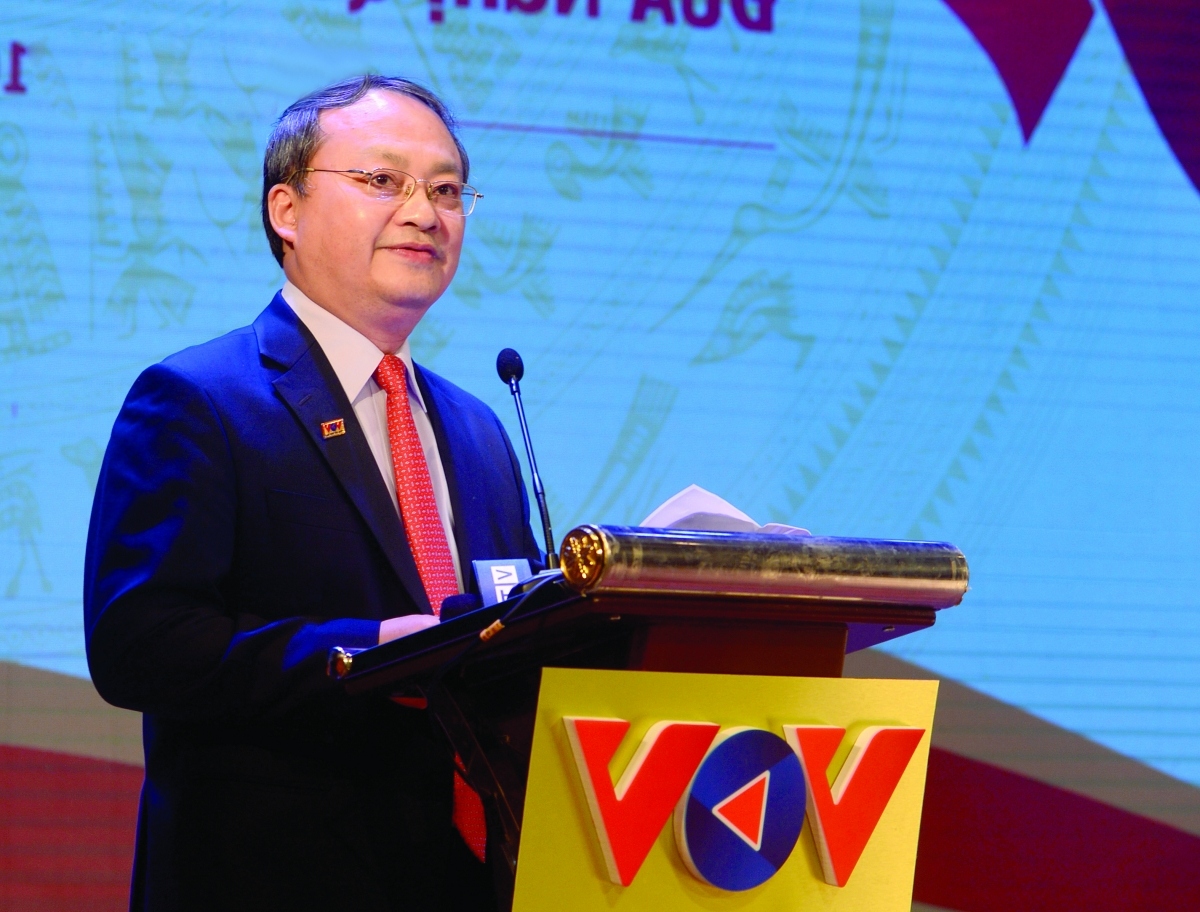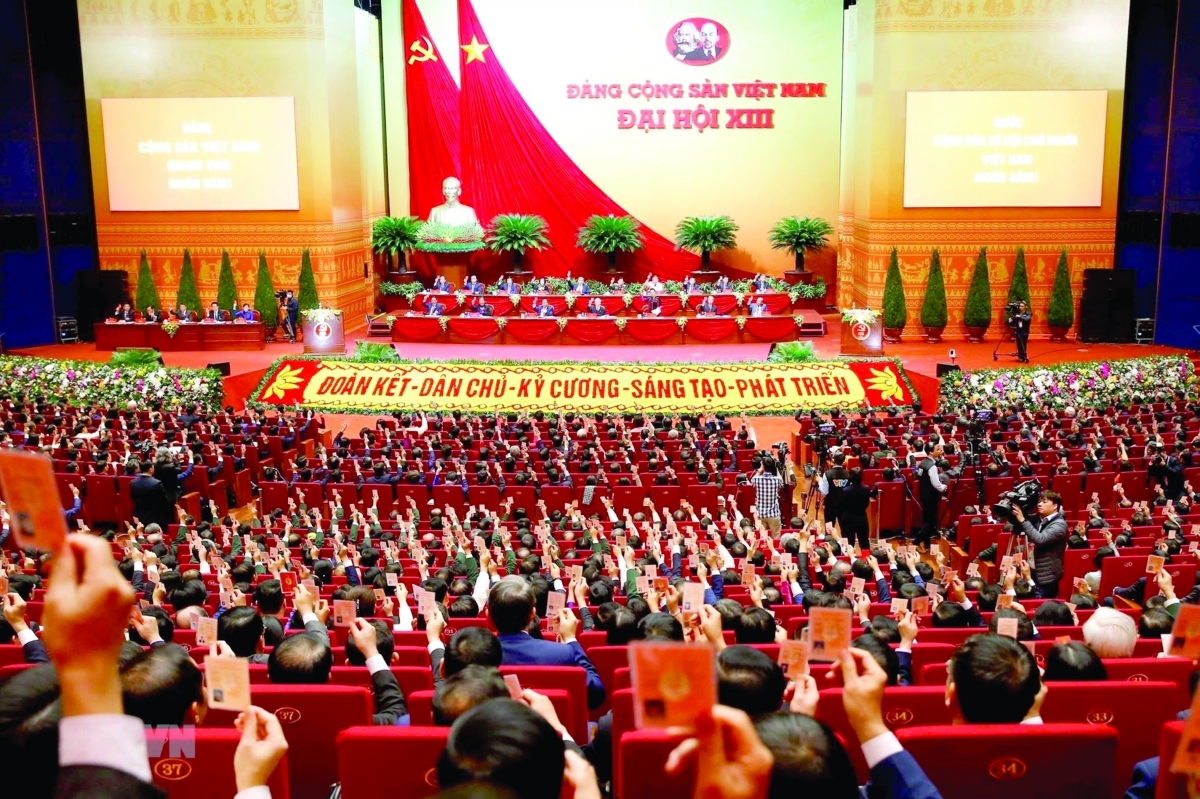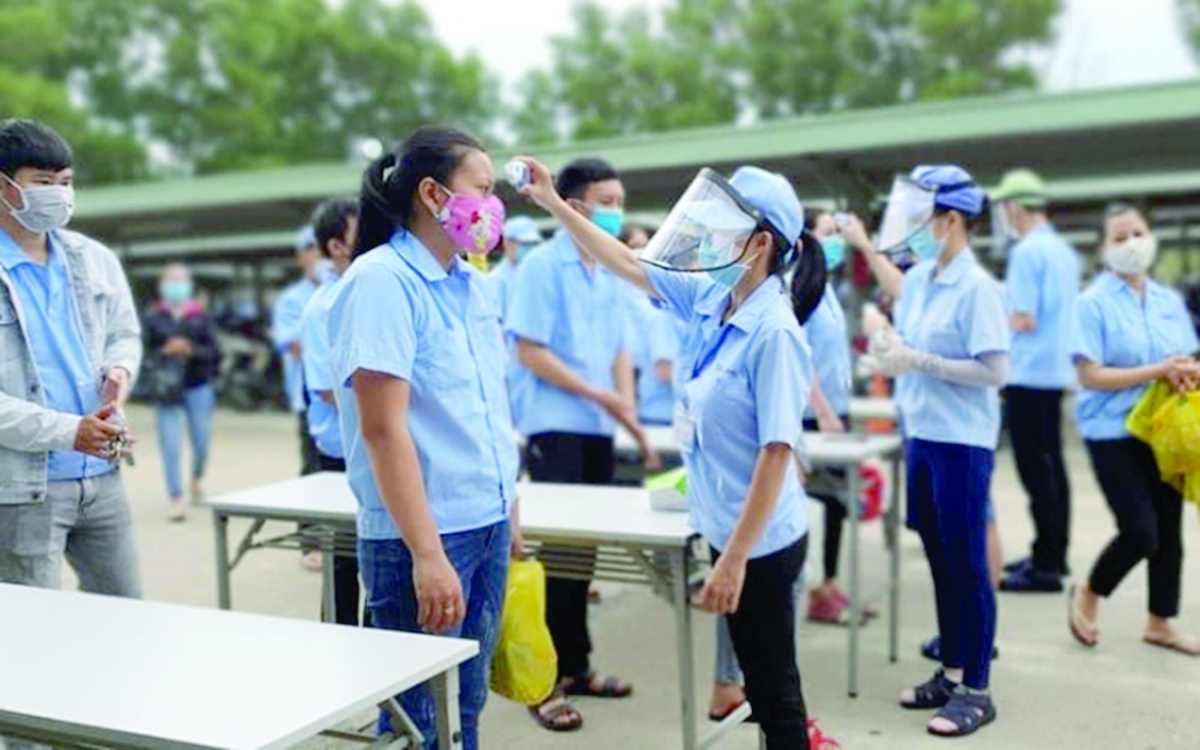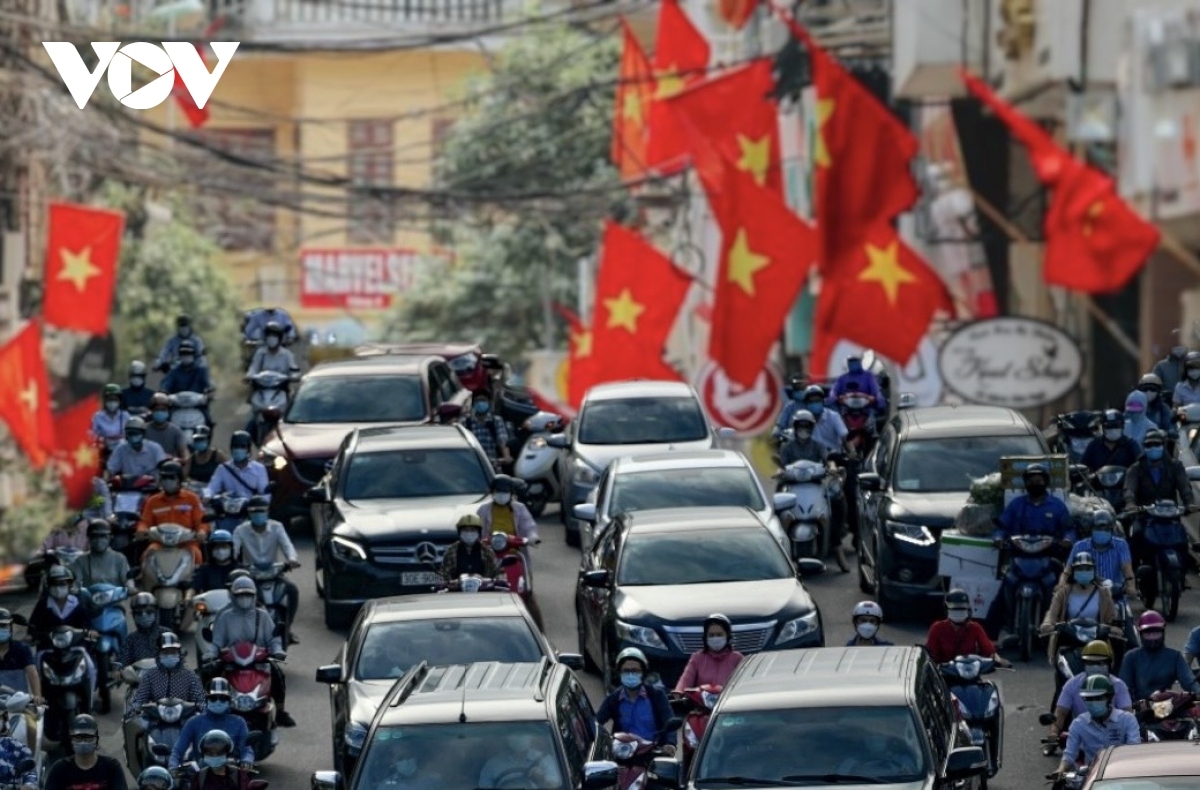Vietnam takes drastic action as it pushes for post-pandemic revival
VOV.VN - Last year witnessed Vietnam effectively shift its COVID-19 strategy from a “Zero COVID” policy to one of living safely with the virus, resulting in important gains in economic recovery and public health care.
In an interview granted to VOV, Do Tien Sy, member of the Party Central Committee, deputy to the National Assembly, and VOV President, attributed the initial encouraging results to the consensus of the entire political system and all of society to contribute to the fight against the pandemic.

Following are some excerpts from the interview.
Question: Vietnam has spent two years combating the COVID-19 outbreak. What is the biggest lesson learnt so far?
Answer: 2021, the second year of responding to the COVID-19 pandemic, saw the whole country experience plenty of ups and downs as it faced unprecedented situations. The biggest lesson learned from the fight, I think, is the consensus of the entire political system and all of society as evidenced in Party General Secretary Nguyen Phu Trong’s appeal for strong resolve to beat back the virus.
Looking back at the beginning of the year when the 13th National Party Congress and the 15th NA election took place, the pandemic was effectively controlled. But the reemergence of the virus in late April represented a big test to the nation. As such, the newly-elected NA at its first session in July adopted a resolution calling for bold COVID-19 prevention and control measures in order to realise the country’s dual goal of epidemic control and economic recovery in an attempt to fulfil major targets set for the year.
The newly-elected Government during its first meeting in August pointed out that the COVID-19 pandemic was evolving in a complicated and unpredictable manner both globally and locally, thereby threatening people’s health and seriously impacting the national economy.
Given these circumstances, the Government maintained that protecting the health and life of local people was the primary task, whilst combating COVID-19 required flexible and feasible solutions in order to adapt to the prolonged impact of the pandemic. The Government later issued Resolution No.128 adopting the strategy of safe and flexible adaption and effective control of COVID-19 after taking into account recommendations made by scientists and experts in line with the actual situation in the country.

Question: Could you please analyse the decisiveness and flexibility in the Government’s performance over recent times?
Answer: I would like to re-emphasise that the consensus of the whole political system and all of society is the basis for the Government to make drastic and flexible decisions. Their decisiveness and flexibility has been based on scientific and practical arguments. As such, we were very aggressive in the early stages with social distancing and contact tracing, buying us a valuable time to strengthen frontline forces to fight the virus. We later drastically implemented the vaccine diplomacy campaign and focused on rolling out vaccinations nationwide in order to reduce the numbers of severe cases and deaths, whilst gradually transiting to a new normal. By the end of 2021, we injected more than 150 million doses of vaccine, with this figure expected to achieve herd immunity according to the theory put forward by scientists.
It is also worth remembering that during the height of the fourth outbreak in Ho Chi Minh City and other southeastern localities, that tens of thousands of doctors, army, and police forces were deployed to the south to support the fight against the pandemic there. Field hospitals with a capacity of 500 beds each quickly took shape in order to receive and treat patients. Each commune, ward, and residential group therefore became a fortress against the virus.
In an effort to ease pressure faced by field hospitals, the health sector allowed mild and asymptomatic patients to monitor their condition at home with support from mobile healthcare teams. This appropriate model helped us to control the pandemic and reduce hospitalisations, as well as deaths.
This level of decisiveness and flexibility was also mirrored in terms of economic management. Following the extensive vaccination campaign, we were quickly able to switch the COVID-19 strategy from social distancing to flexible adaptation and effective control of the virus, thereby returning the country to a new normal.

When the vaccine campaign proved effective, we quickly reopened the economy, with the primary aim of ensuring social security and not disrupting the supply chain in any circumstances. Indeed, the Vietnamese economy enjoyed a high level of openness, while it was deeply involved in the global supply chain. Amid this context we had no other choice but to have policies compatible with the rest of the world, this was done in order not to lose partners and not to let the opportunity fall into the hands of others.
These drastic and flexible measures therefore yielded undeniable results. The macro-economy continued to remain stable, major economic balances were ensured, and inflation was reined in at a low level. The number of newly-registered enterprises once again increased and the country maintained national defence and security to ensure social security and protect people’s health.
Question: How has the media played its role in combating the pandemic?
Answer: According to the Communications Subcommittee under the National Steering Committee for COVID-19 Prevention and Control, media agencies have been playing an active role in disseminating directions and measures against COVID-19 by the leadership and reflecting the opinions of citizens and businesses, helping the Government to make timely adjustments to the COVID-19 strategy. In addition, the press has also contributed significantly to creating general consensus throughout all of society in difficult conditions.
As a major media agency of the Government, VOV has also been working hard to contribute to these achievements on all four major genres of the press, namely radio broadcasting, television broadcasting, electronic news, and print format.
Over the past two years, VOV has produced hundreds of thousands of news stories about the ongoing pandemic situation in Vietnam and the rest of the world. It has kept people abreast of the Party and State’s drastic directions, results of COVID-19 treatment, effective COVID-19 prevention and control models, as well as efforts aimed at maintaining business production, restoring the economy, and ensuring social security.
It’s noteworthy that in September 2021, VOV dispatched a group of reporters to Ho Chi Minh City, at the time the epicentre of the country’s outbreak, to give wide coverage of the pandemic situation in the key southern economic region. Reporters volunteering also contributed to the success of the media in the COVID-19 fight.

Question: Do you have any premonitions about the Year of the Tiger in 2022?
Answer: Over the past two years, the entire country has managed to fight the COVID-19 pandemic, all while simultaneously developing the economy and ensuring social security. Amidst continued chaos and worries, the strategy of living safely with the virus is proving to be effective, with life gradually returning to normal across the country. Amidst many painful losses, resurrection can be seen in Ho Chi Minh City. We therefore all wish the Lunar New Year of the Tiger to be the year of revival and development.

